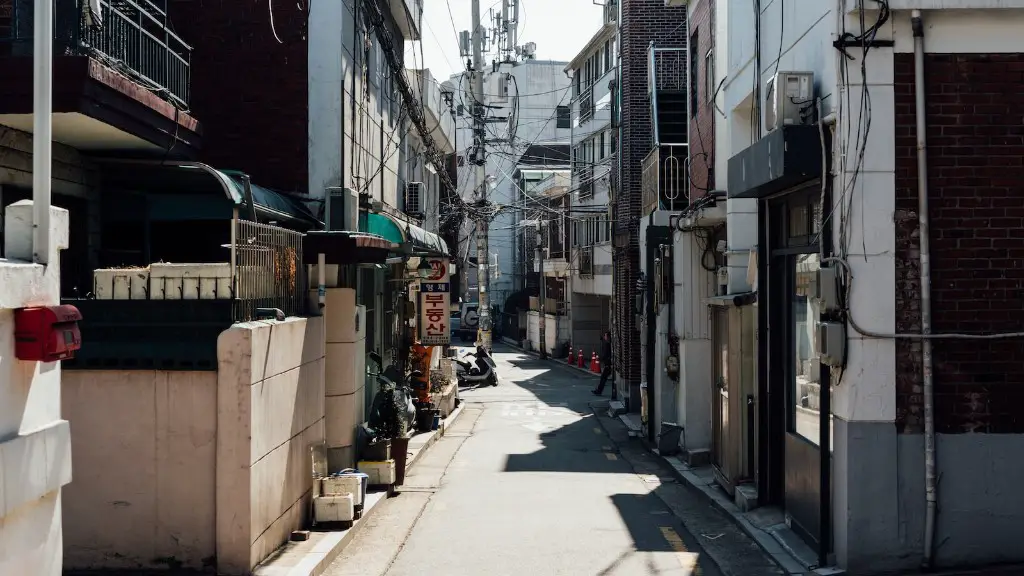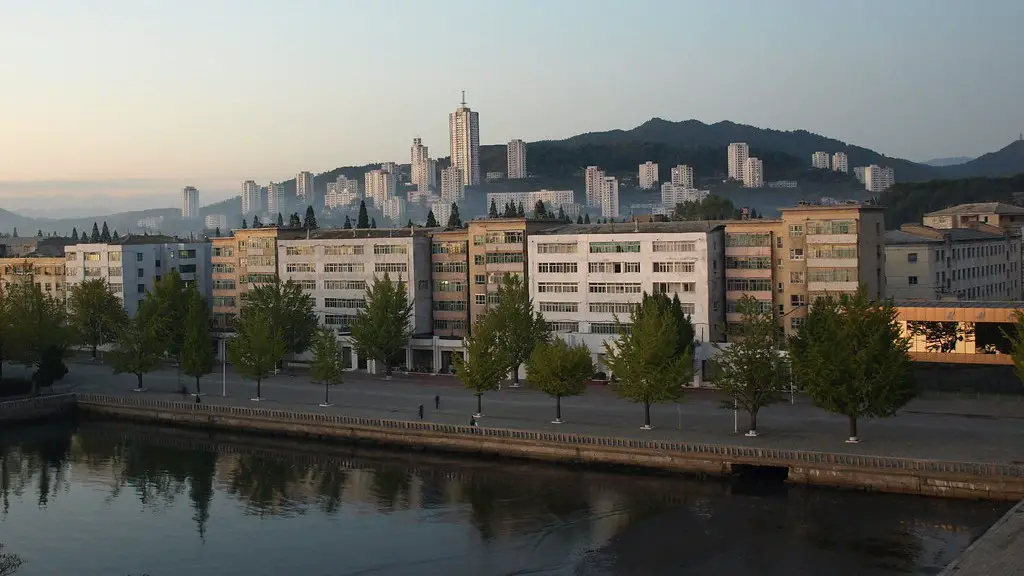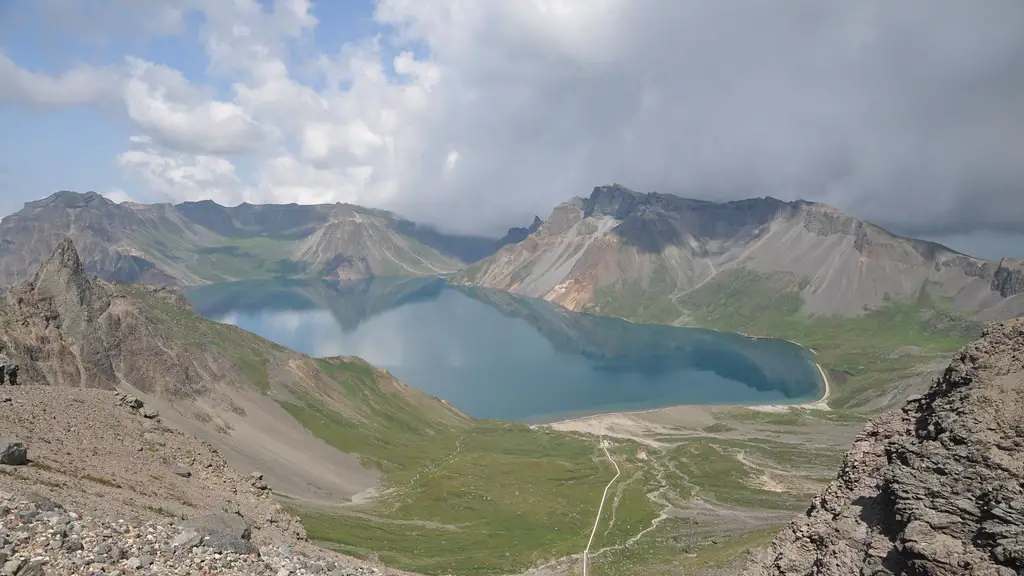Will North Korea Ever Open Up
Recently, hopes have been raised that North Korea is making moves towards embracing a more open, transparent and cooperative relationship with the international community. But the reality on the ground in the hermit kingdom is far more complicated. Despite regular conversations between North Korea and South Korea, and with the international community, North Korea continues to maintain its policy of self-reliance and diplomatic isolationism.
The exact reasons for North Korea’s perpetual isolationism vary depending on who you ask, but some of the primary contributing factors include the fear of foreign intervention and induced regime change, an aversion to western-style democracy and civil rights, a hesitance to open up its economy to unrestricted foreign investment and competition, and the fact that North Korea has few friends or allies with whom it can reliably cooperate or conduct normal diplomatic relations.
According to experts, it’s likely that North Korea will continue to resist opening up and depending upon foreign assistance and cooperation. Even if North Korea gradually opens up, it would do so on its own terms and likely within a tightly controlled environment. Indeed, recent developments suggest that North Korea is cautious, if not outright paranoid, of foreign engagement.
In 2019, North Korea’s economy registered the biggest contraction since 1997—a signal of the pressure North Korea’s leaders are feeling from the international community and its allies. This, in turn, has had ripple effects throughout the region, resulting in increased tensions and military provocations from North Korea.
The potential for North Korea to continue developing its nuclear weapons programme despite international sanctions is also a major concern. North Korea has long maintained that its nuclear programme is for national defence, and negotiations have repeatedly stalled over North Korea’s refusal to open its nuclear facilities for inspection or dismantle its weapons.
The international community remains deeply divided on the issue, with countries like China advocating for continued diplomatic efforts while countries like the US favour a more hardline approach of sanctions and pressure. The complexity of the issue has made it almost impossible to find a resolution in the near future.
Nevertheless, hopes remain that an eventual diplomatic solution between North Korea and its neighbours can be reached; one that compromises the security and interests of all parties, while allowing North Korea to benefit from economic and military cooperation.
Limitations to Progress
Since the Korean War, North Korea has been ruled by an authoritarian regime that does not tolerate dissidents, independent media, or outside influence. This restrictive environment has severely limited North Korean citizens’ access to outside information and the freedoms afforded to citizens in democracies.
Little progress has been made in the area of democratising North Korea. While there have been small steps taken towards moderating its economy, these have been limited to loosening of restrictions on foreign investment and the introduction of limited market-oriented reforms.
This lack of tangible reform has often hampered diplomatic negotiations and hindered potential solutions. North Korea is also notoriously difficult to connect with in terms of its foreign relations; preferring to negotiate strictly on their own terms and conditions.
In spite of this, there have been positive developments over the past few years – most notably in the form of summits between the US and North Korea – but progress has been slow and uncertain. In the meantime, North Korea continues to build upon its international reputation as a closed, isolated nation.
Current Developments
Recently, North Korean leader Kim Jong Un has undertaken a series of diplomatic efforts aimed at improving the country’s global status. These have included meetings with US President Donald Trump, South Korean President Moon Jae-in, and Chinese President Xi Jinping.
There have also been smaller gestures of diplomacy, such as the opening of cross-border travel routes, which allowed some South Koreans to visit family in the North, and Kim Jong Un’s public displays of friendship with other global leaders. Such acts could suggest that North Korea is attempting to strengthen ties with its neighbours and the international community.
Additionally, there are signs that North Korea may be open to opening its economy further, as evidenced by its participation in the China-South Korea-Japan trilateral summit in 2018 and the revival of the North-South Korean Economic Promotion Agreement in 2019.
Nonetheless, despite North Korea’s willingness to engage in diplomacy, it has also continued to maintain a strict policy of isolation and self-reliance. It is unclear if North Korea will ever fully embrace the international community and open up its economy, society and politics.
Restrictions on Travel
North Korea’s borders are strictly controlled and most foreign travel to the country is heavily restricted. Even if tourists are granted permission to enter, they are expected to adhere to a strict set of rules which include limits on travel, photography and communication.
Attempting to travel to North Korea without permission can result in severe penalties including long prison sentences and even, in some cases, deportation. Such restrictions have further isolated North Korea from the outside world.
The few tourists who are allowed to visit the country are usually taken on highly-controlled tours and allowed limited access to the country at the discretion of the government. As such, these tours have come under criticism for promoting North Korea as a tourist destination, rather than providing an accurate depiction of life.
While North Korea does officially authorise foreign visitors, it is difficult for outsiders to understand the process and what is expected of them. This serves as yet another barrier to entry for foreign tourists, and further limits North Korea’s engagement with the international community.
The Role of External Pressure
The international community has little leverage when it comes to influencing North Korea’s internal policies and the only real way to open up the hermit kingdom is through external pressure. International sanctions have long been used to place economic and diplomatic pressure on North Korea, but the effectiveness of such measures is debatable.
The US has also threatened military action against North Korea and while such threats may have contributed to a decrease in hostile behaviour from the regime, they have done little to change the government’s stance on international relations.
Ultimately, the importance of the international community lies in its ability to provide aid, investment and technology that North Korea lacks. This could potentially open up the country to greater economic and social opportunities, but only if North Korea is willing to concede to international demands.
North Korea and the Future
Given North Korea’s unwavering commitment to self-reliance, it is unlikely that it will fully open up to the international community in the near future. Equally, it may be some time before the international community can find a resolution to the current stalemate and convince North Korea to give up its nuclear weapons program.
Until then, the only real way for North Korea to become a more open and tolerant society is through internal changes and reforms. This, however, is a difficult task given the highly authoritarian nature of the North Korean regime and the limited access to outside information.
For now, the only thing that is certain is that the future of North Korea is far from certain. In the midst of regional tensions and a global pandemic, it may be some time before North Korea is able to open up and engage the international community once more.
Adaptation to the Global Economy
Experts agree that if North Korea is ever to embrace open relations with the West, it will need to make significant changes to its economy and political system. This includes embracing new industries, such as tourism and technology, and improving its infrastructure in order to be competitive in the global market.
Nonetheless, North Korea’s ability to remain competitive in this changing world is hampered by its lack of access to modern technology and recent sanctions imposed on the country. This has led to stagnation of its economy and a widening economic gap between North Korea and its neighbours.
At the same time, North Korea’s leaders have attempted to reduce state control over the economy and relax restrictions on foreign investment in the hopes of encouraging much-needed economic growth. However, the success of such measures is largely dependent upon the goodwill of international partners and the ability of North Korea to adapt to the ever-changing global economy.
Political and Social Unrest
Despite recent diplomatic efforts, North Korea continues to be plagued by political and social unrest. This risk is magnified by the fact that North Korea’s political system is constantly shifting and its leaders come and go with little warning.
The persistent lack of economic opportunities and the proliferation of internet access has resulted in public protest and discontent among the North Korean population. This stubbornness is further aggravated by the country’s stringent control of its citizens and the limited access to the outside world.
North Korea’s future will undoubtedly hinge on the ability of its government to maintain a balance between economic growth and public order. This is no easy task given the ever-changing global environment, but it is a necessary one if North Korea is to open up to the international community.
The Role of South Korea
South Korea has long played a major role in facilitating negotiations between North Korea and the international community. In recent years, South Korea has stepped up its engagement with the North, leading to the successful North–South Joint Declaration in 2018, which sought to improve inter-Korean relations and reduce nuclear tensions.
South Korea also provides North Korea with a range of aid, including food, fuel and medical supplies. This aid has allowed North Korea to maintain its basic standard of living despite international sanctions, and is seen by some as a gesture of goodwill.
At the same time, South Korea has been criticised for enabling North Korea in its pursuit of nuclear weapons and its refusal to open up its economy or alter its political system.
South Korea’s role in opening up the North is complex and, while it may have the potential to facilitate positive change in the region, it is ultimately up to North Korea to decide whether or not it wants to open up.





